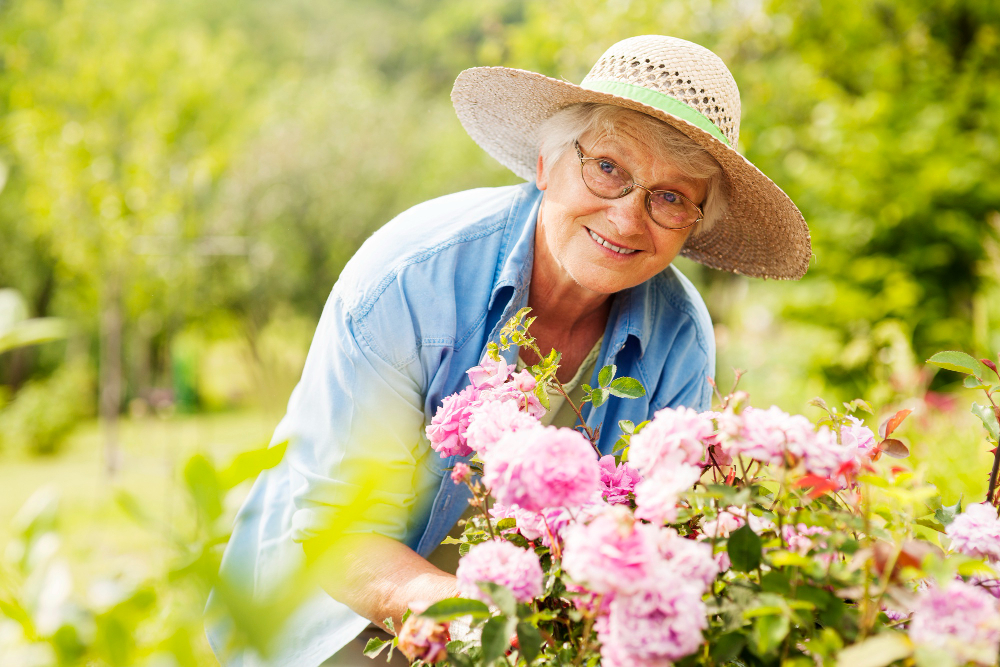Back and Joint-Friendly Gardening Tips for Seniors

Gardening is an excellent activity for seniors. It provides physical exercise, fresh air, and the satisfaction of creating something beautiful. However, gardening can sometimes be strenuous on the back and joints. As we get older, our bodies become more sensitive to the physical demands of gardening. Therefore, it’s essential to use the right techniques and tools to help prevent injury. In this blog post, we’ll explore some back- and joint-friendly gardening tips that seniors can use to stay safe while tending to their garden.
1. Plan your garden wisely
Planning your garden wisely can help prevent back and joint strain. Start by choosing a garden location that is easily accessible and has minimal slopes or inclines. Consider using raised garden beds to provide a more comfortable working height. Also, try to arrange your plants and gardening tools in a way that reduces the need to bend, reach, or twist. Plan your garden path to provide a stable and flat surface to walk.
2. Use ergonomic tools
Ergonomic tools are designed to reduce the strain on your back and joints while doing work in the garden. Consider using lightweight tools with long handles to help you stand upright and avoid excessive reaching. Tools with padded handles can also help reduce hand strain. Use a kneeling pad to protect your knees while working on the ground.
3. Warm-up and stretch
Just like any physical activity, warm-up and stretching are essential before starting gardening. It helps to increase blood flow and loosens up muscles. Try to warm up with a light walk around your garden, or some gentle stretching exercises that focus on the back and legs. If you're not sure what exercises are right for you, consult with a physiotherapist.
4. Take breaks and stay hydrated
Take regular breaks to rest your back and joints, especially during hot and humid weather conditions. Also, it's important to stay hydrated to prevent muscle cramps and dizziness. Drinking water is the best way to stay hydrated. Avoid drinking caffeine or alcohol while working in the garden as they dehydrate you faster.
5. Listen to your body
Lastly, it's crucial to listen to your body and pay attention to warning signs such as pain, discomfort, or fatigue. Do not push yourself beyond your limits. If you experience pain or discomfort, take a break to rest and stretch. Consult with your physiotherapist if symptoms persist.
Conclusion
Gardening can be enjoyed at any age if done mindfully and with the right technique. When done correctly, gardening can benefit not only your physical health but also your mental wellbeing. Try incorporating these back- and joint-friendly gardening tips into your routine. If you are experiencing any pain or discomfort, consult with a physiotherapist immediately. They will assess your condition and develop an individualized treatment plan tailored to your needs. Remember, a healthy body leads to a healthy mind, so prioritize your wellbeing. If you're seeking for Physiotherapy in Winter Springs, FL, contact B Physical Therapy today to schedule an appointment.